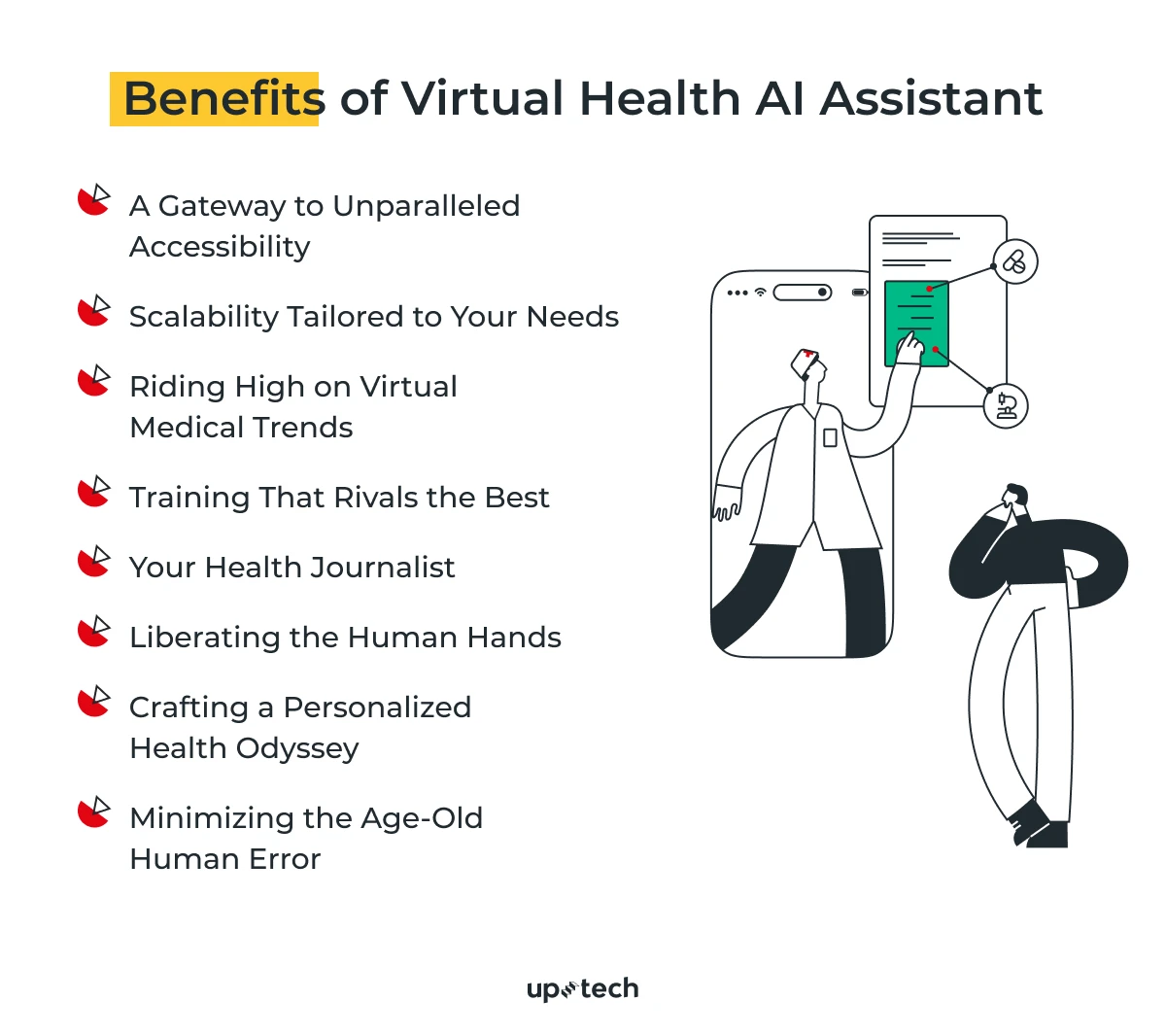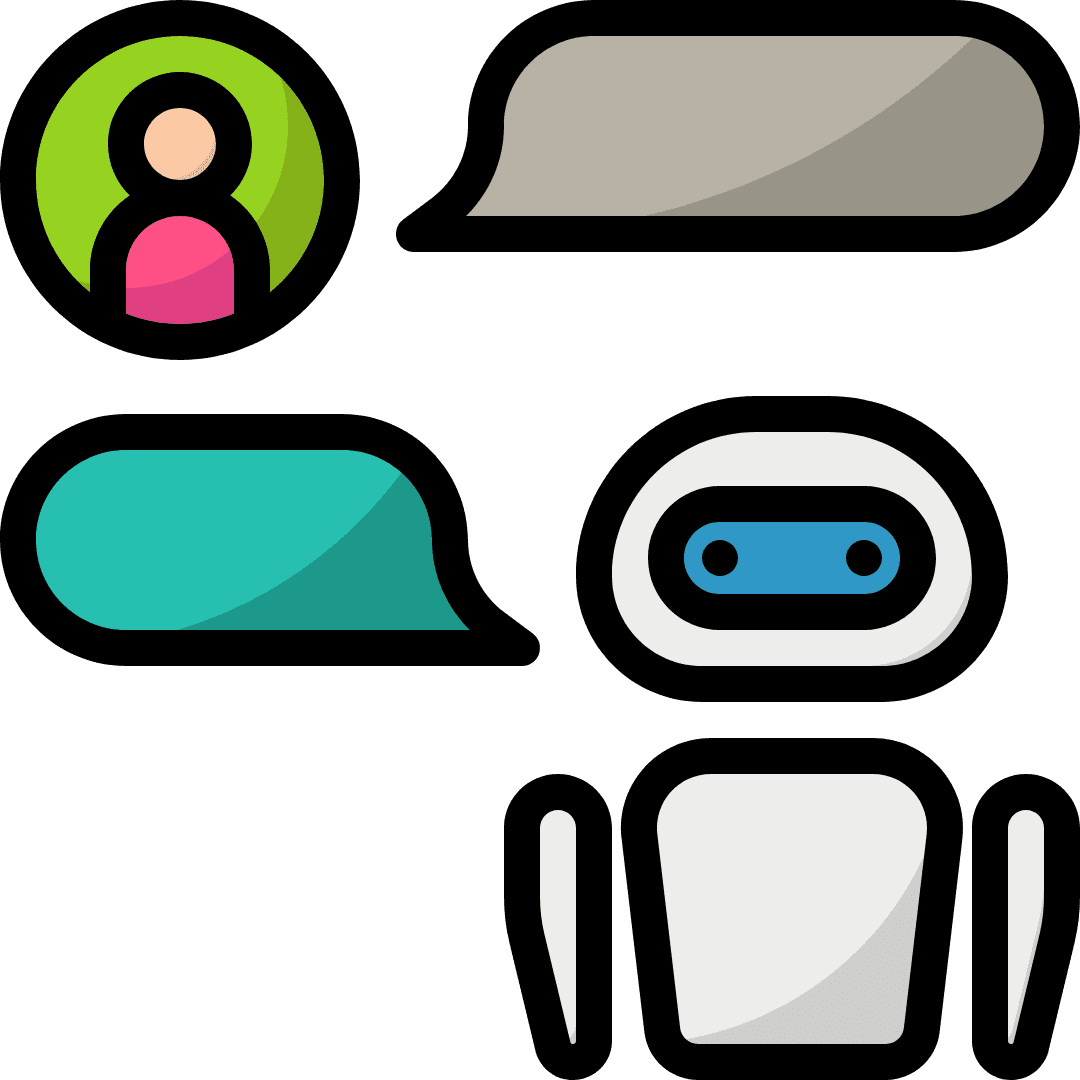A Blueprint to Craft AIpowered Virtual Healthcare Assistant Circuit Diagram The Role of AI in Smart Healthcare. Artificial Intelligence (AI) is fundamentally transforming the landscape of healthcare, especially through its integration into smart healthcare devices.These devices, powered by AI, can continuously monitor patients' health and provide real-time insights, which can significantly improve the quality of care and patient outcomes. The features of your virtual assistant can make a stark difference between a good tool and an exceptional one. Infused with the right parts, an AI healthcare assistant can cater to patient's immediate needs and anticipate and address potential health concerns. Let's explore the vital features that an AI-driven healthcare assistant must possess:

Reading Time: 5 minutes Most healthcare organizations already use artificial intelligence (AI) in their daily operations. They just don't know it. Built-in components power their infrastructure, streamline patient scheduling, enhance diagnostic accuracy, and enable ambient listening technologies that passively capture and document patient-clinician interactions to reduce administrative tasks "We are at the start of a medical revolution, potentially similar in scale to the discovery of X-rays," says Santiago Romero-Brufau, M.D., Ph.D., Program Director of Implementing Health Care AI into Clinical Practice, and Adjunct Assistant Professor in the Department of Biostatistics at Harvard T. H. Chan School of Public Health. "Over The Potential of AI Assistants. AI assistants have the potential to revolutionize patient engagement by providing instant, 24/7 support. These assistants can help bridge the gap between patients and healthcare providers, offering a more efficient way to manage health concerns.

powered Virtual Healthcare Assistant Circuit Diagram
By 2030, AI chatbots will: make healthcare more accessible and inclusive by creating smaller healthcare centers connected digitally; let healthcare systems predict when someone is at risk of chronic diseases; help reduce wait times, make work easier for doctors, and take care of administrative tasks. AI Virtual Assistant In Healthcare Use Cases:

🤖 Symptoms Detection: using Artificial Intelligence for specialist recommendation and illness detection. 📅 Appointment Scheduling: based on the nearest doctor to your location or the first available appointment. 📘 Medical Records: securely stored in the blockchain using smart contracts. 💬 Blogs and Forum: using machine learning for patient satisfaction prediction.

How to Create an AI Assistant: Our Experience Circuit Diagram
AI assistants handle 85% of user requests, reducing workloads and improving user experience. Data gathering, model training, interface development, testing, and deployment are the five most crucial steps in AI assistant development. AI assistants evolve to "think" like humans and recognize emotional cues, enabling more empathetic interactions. Healthcare decisions often require integrating information from multiple sources, such as medical literature, clinical databases, and patient records. LLMs lack the ability to seamlessly access and synthesize data from these diverse and distributed sources. This limits their potential to provide comprehensive and well-informed insights for healthcare applications. In this blog post, we will This article opens the door to countless possibilities in healthcare applications. From personalized care to improved accessibility, this app is a step toward the future of AI-driven health diagnosis assistants. Feel free to experiment and enhance this basic healthcare assistant we have set up. Who knows, one day it might save a life.
